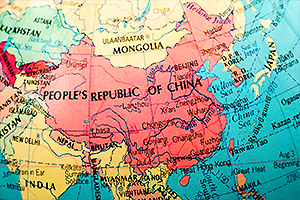
China’s rapid rise to global prominence, both economically and politically, has rightly raised concerns in the international community. President Xi Jinping’s desire for greater influence and world leadership is manifested through aggressive expansion of its military power, increasing economic ties and loan packages and an assertive diplomatic offensive meant to overshadow America and the West.
A critical part of these efforts to gain significant global influence is China’s Belt and Road Initiative (BRI). Launched in 2013, the BRI is an ambitious plan to link China with Europe, Africa, Central America and other parts of Asia through infrastructure development, economic integration, and cooperation among participating nations. This project is designed to cement China’s position as a global economic powerhouse and increase each member nation’s dependence upon the Red power. However, China acts more like a usurer than a good neighbor.
The BRI as a Trap, not a Benefit
Over the last decade, Xi Jinping’s “project of the century” loaned hundreds of billions of dollars to nations it hopes to dominate through investments. This effort ran into trouble due to COVID and China’s economic slowdown. In 2022, sixty percent of its partner countries were drowning in debt, compared to just 5 percent in 2010.
Thus, many of these BRI partners face “debt-trap diplomacy,” in which Chinese lenders charge exorbitant interest rates on loans that can extort concessions from desperate nations. Reports show that rates are as high as four times what the Organization for Economic Cooperation and Development charges. China is a loan shark, not a benefactor.
These loans give China considerable influence over legal, political and economic decisions. Furthermore, this influence gives Chinese companies access to markets with their cheap goods that devastate local businesses and disrupt livelihoods in the countries they claim to be helping! China artificially depresses its yuan currency to gain an unfair advantage in its exports. A final problem with BRI is the shoddy quality of its infrastructure projects.
Strengthening Military Capabilities
Another field of concern is Chinese military spending and development. China is escalating its military modernization efforts, especially in artificial intelligence, drone and missile technology advancements. China’s assertive claims in the South China Sea and increased military presence highlight its desire to intimidate those in the region and challenge the freedom of vital shipping lanes.
Help Remove Jesus Bath Mat on Amazon
In addition, it has been rapidly developing its military capabilities to bolster its strategic influence in and around the hotly disputed South China Sea, especially the Taiwan Strait.
China’s military buildup is aimed at Taiwan, which it seeks to conquer.
Other Areas of Concern
The growing ambitions of China have faced resistance across the world, with notable challenges including:
International Ambitions: China is increasing its influence in international organizations to gain greater control and sway in global decision-making processes, such as the World Health Organization and other United Nations institutions.
Satanic Christ Porn-blasphemy at Walmart — Sign Petition
Alliances with Totalitarian Regimes: Western governments remain wary of China’s alliances with anti-Western regimes. It also supports communist nations like North Korea, Cuba, Venezuela and Nicaragua, which have long proven their violation of the most basic human rights. China seeks to be a dominant global leader with the support of these regimes.
Economic Competition: China is a major economic force that has engaged in practices threatening free trade. Its cheap labor, lack of regulation and government subsidies prevent a level playing field in world trade. The Chinese government has been accused of economic protectionism and unfair trade and labor practices that harm business and the world economy.
Human Rights Abuses: The Chinese government violates human rights through practices like forced labor, censorship and the torture of political dissidents. For example, the Chinese government has imprisoned more than one million people since 2017 and subjected those not detained to intense surveillance, religious restrictions, forced labor and forced sterilizations. China’s actions against the Uyghur minority “constitute genocide, while a UN report said they could amount to crimes against humanity.”
Environmental Issues: Despite its ecological commitments at the United Nations Climate Change Conference (COP21) in Paris, China still disregards environmental care with massive plastic, air and water pollution. It remains the largest polluter in the world year after year. These issues indicate unaccountability, inadequate infrastructure, insufficient enforcement and overall bad management: all hallmarks of communist regimes.
How Panera’s Socialist Bread Ruined Company
Suppression of the Church: China’s communist ideologies have historically suppressed religion, especially the Catholic Church. The regime persecutes the “underground” Church and promotes its ideology through a puppet “Patriotic” Church.
China’s pursuit of world leadership is a threat to the world. If it achieves its goal of global dominance and the suppression of the U.S., it will be a disaster on a massive scale.
Photo Credit: © johndwilliams – stock.adobe.com


